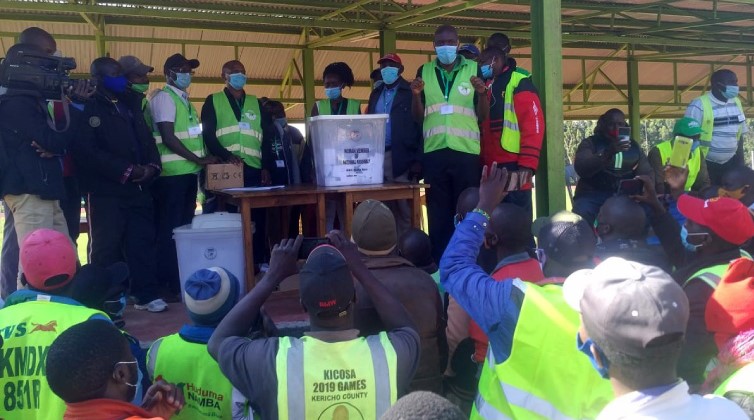The question of whether the Independent Electoral and Boundaries Commission (IEBC) conducted free and fair elections in Kenya is a matter of debate and opinions may vary.
Some believe that the IEBC has made strides in improving the electoral process and creating a level playing field for all political parties, while others argue that there are still areas for improvement, such as ensuring the integrity of the voting process and ensuring transparency in vote counting.
It’s important to note that election monitoring organizations and international observers typically evaluate the overall fairness of an election by considering a variety of factors, including the legal framework, the administration of the voting process, the conduct of political parties and candidates, and the impartiality of the media.
These evaluations can provide valuable insights into the strengths and weaknesses of an election, and can help to inform future efforts to improve the electoral process.

Ultimately, the question of whether an election is free and fair can be a complex and subjective one, and will depend on the perspectives and experiences of different groups and individuals.
Is IEBC well constituted?
The constitution and composition of the Independent Electoral and Boundaries Commission (IEBC) has been a subject of debate and controversy in Kenya.
Some believe that the IEBC is well-constituted and has the necessary expertise and independence to carry out its mandate effectively, while others argue that the commission has been compromised by political interference and lacks the credibility and impartiality needed to manage free and fair elections.
The specific concerns that have been raised regarding the composition and functioning of the IEBC include issues related to the selection and appointment of commissioners, allegations of political bias and partisanship, questions about the transparency and accountability of the commission, and concerns about the commission’s ability to manage complex electoral processes effectively.
Ultimately, the question of whether the IEBC is well-constituted will depend on the perspectives and opinions of different groups and individuals, as well as the specific circumstances and context in which the commission is operating.
It is important for the IEBC to address these concerns and demonstrate its commitment to impartiality, transparency, and integrity, in order to ensure public confidence in the electoral process and promote stability and democracy in Kenya.

How is government involvement in free and fair election?
The role of the government in promoting free and fair elections is crucial to the credibility and legitimacy of the electoral process.
In general, the government is responsible for creating an enabling environment for free and fair elections by ensuring impartiality, transparency, and the rule of law. Some of the key ways in which the government can ensure free and fair elections include:
- Enforcing the independence of election management bodies: The government should ensure that election management bodies, such as the Independent Electoral and Boundaries Commission (IEBC), are free from political interference and have the necessary resources and independence to carry out their mandate effectively.
- Providing equal access to resources and opportunities: The government should ensure that all political parties and candidates have equal access to resources and opportunities, such as campaign financing and media coverage, to enable them to participate in the election process on a level playing field.
- Protecting the rights of voters: The government should ensure that the rights of voters, such as the right to free and fair elections, freedom of expression, and freedom of association, are protected.
- Upholding the rule of law: The government should ensure that the rule of law prevails throughout the electoral process and that the electoral laws and regulations are enforced fairly and impartially.
- Ensuring transparency and accountability: The government should ensure that the electoral process is transparent and accountable, and that allegations of misconduct and irregularities are investigated and addressed in a fair and impartial manner.
The extent to which the government is able to successfully fulfill its role in promoting free and fair elections will depend on a range of factors, including the political context, the level of political commitment to democracy and the rule of law, and the capacity of the relevant institutions and actors.







More Stories
Petition filed over irregular procurements, Tender awards at KeRRA
Optiven Launches “Free Plots” Campaign, Rewarding Investors in November